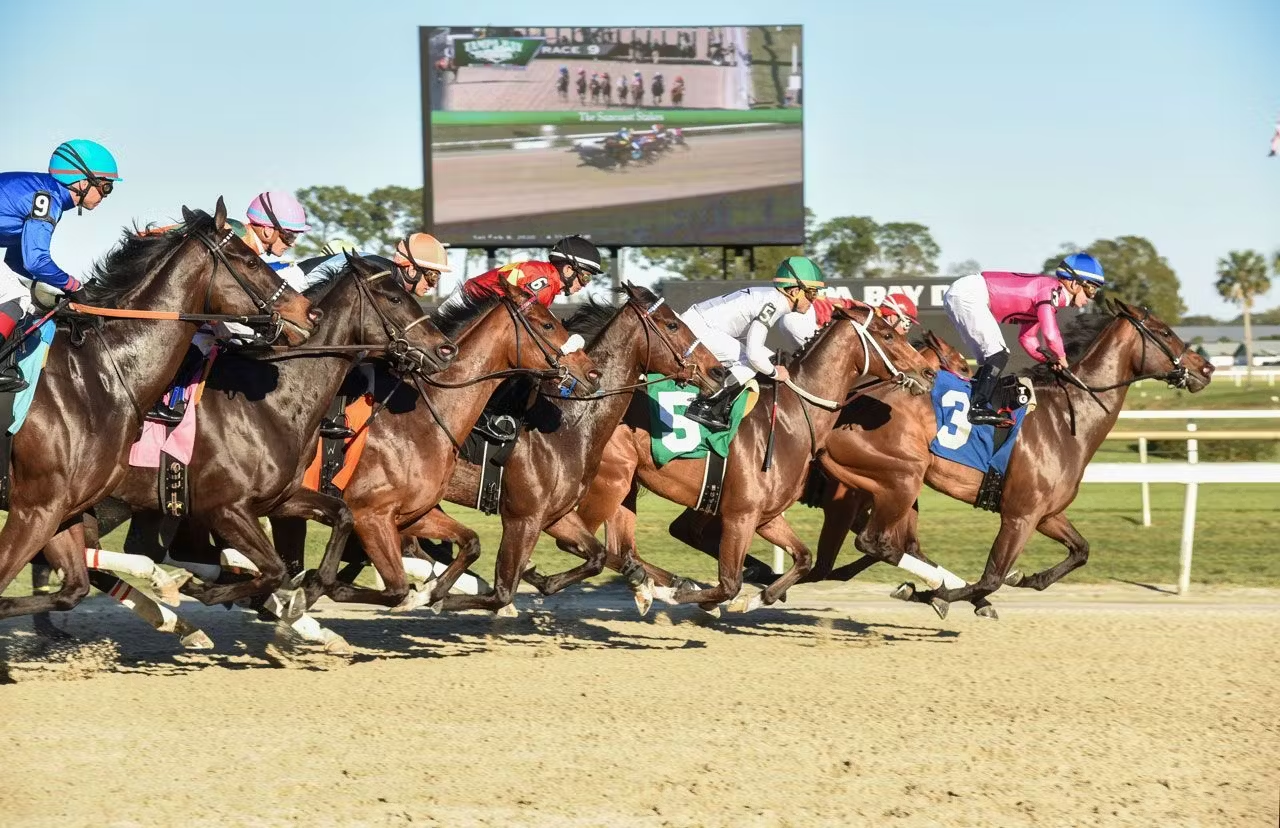What is a non-wagering event in horse racing?

Racing at Tampa Bay Downs (Photo by SV Photography)
The 2024 Tampa Bay Derby (G3) at Tampa Bay Downs made headlines. A tote malfunction forced a lengthy delay and prompted Tampa’s signature race to be run as a non-wagering event.
The concept of a non-wagering event might be unfamiliar to casual racing fans, because they’re not especially common in the United States. Pari-mutuel betting is available on the vast majority of horse races, but a few different circumstances can prompt races to be contested without betting, turning them into non-wagering events.
What are mandatory-payout carryovers, and why are they valuable?
— TwinSpires Racing 🏇 (@TwinSpires) January 19, 2022
Let’s ask @j_Keelerman 👇https://t.co/y93l9aJ7Id
A race might be conducted as a non-wagering event if…
- … a malfunction with the tote system that commingles bets from various sources (on track, online, off-track betting outlets, etc.) malfunctions and makes the processing of pari-mutuel bets impossible. Such was the case with the 2024 Tampa Bay Derby. Because the tote malfunctioned after betting had begun, refunds and consolation payoffs were issued as required (depending on the type of bet) and no further bets were accepted.
- … a race is deemed too uncompetitive to warrant wagering. This occurred with some regularity before the rise of exotic wagers like the trifecta and superfecta and multi-race bets like the Pick 3 and Pick 4, which make unappealing betting races more playable. When the sensational three-year-old filly Dark Mirage faced only three rivals in the 1968 Delaware Oaks, the race was contested as a non-wagering exhibition run in between the seventh and eighth races on the card.
- … the race isn’t a typical event. Sometimes tracks will schedule steeplechase races as non-wagering events alongside their regular flat races.
- … betting isn’t allowed in the state where the race is taking place. Racing over hurdles is held at Camden in South Carolina each spring, with the Carolina Cup Hurdle serving as a highlight. But since betting on horse races isn’t legal in South Carolina, the races are run as non-wagering events.
- … something compromises the fair running of the race. In races where horses make a complete lap or more around the track, if a tractor malfunction prevents the starting gate from moving out of the way, the horses might be forced to pull up and avoid the gate, prompting the race to be retroactively declared a non-wagering event. Refunds and consolation payoffs are issued as required.
Related to the concept of a non-wagering event is a horse who runs for purse money only. This can occur if a horse is accidentally scratched—or listed as a scratch—without cause. Rather than force the horse to withdraw, some tracks allow the horse to compete for purse money, but not as a betting interest. The finishing position of a horse competing for purse-money only is ignored; even if the horse wins and takes home the winner’s share of the purse, the runner-up is considered the “winner” for betting purposes.
A horse can also be declared a “non-starter” after a race is run. If, for example, a horse’s starting gate fails to open in sync with the rest of the gates, the horse might be declared a non-starter because he was unfairly compromised. In this case, the horse is effectively scratched, with wagers refunded and consolations payoffs issued.
Now that you’re up to speed on non-wagering events, non-starters, and horses competing for purse money only, you’ll find these situations less confusing on those (fortunately infrequent) occasions when they pop up.
ADVERTISEMENT



